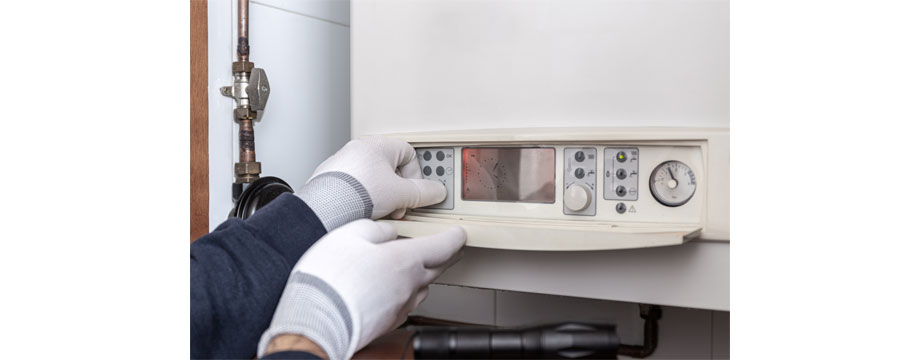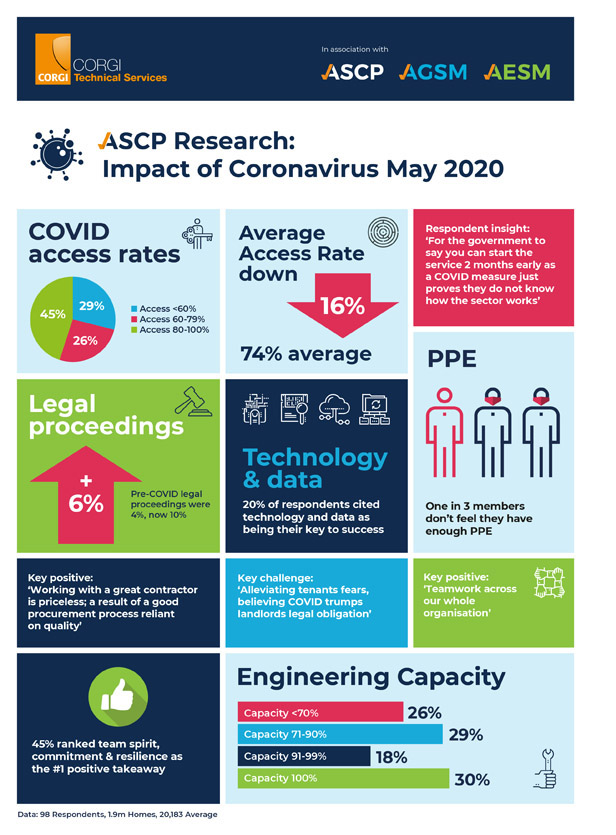In 2020 a new problem significantly exacerbated the age-old problem of access to residents’ homes to perform gas safety checks and repairs and maintenance, namely the global Coronavirus pandemic. However, in addition to this there is another way in which social landlords can also be inadvertently skating on thin ice when attempting to stay on the right side of the regulations.
Central to all gas safety regimes is accessing residents’ homes – this is a perpetual problem for all social landlords. It is a time-consuming, costly annual process yet essential for resident’s safety and a regulatory requirement as per the Gas Safety (Installation and Use) (Amendment) Regulations 2018.
The above regulations state that landlords are responsible for making sure that gas fittings and flues are maintained in good order, and gas appliances and flues are checked for safety once in a period of 12 months. Landlords must also keep a record of the safety checks until two further gas safety checks have been carried out and for at least two years for appliance/s removed from the premises. Landlords must issue the latest record to existing tenants and any new tenants before they move in.

According to the HSE, about 14 people die every year from carbon monoxide poisoning. This is often caused by gas appliances and flues which have not been properly installed or maintained. Many others also suffer significant long term ill health.
The regulation is clear and yet access to do these safety checks is an ongoing problem for social landlords; this problem has been magnified beyond all expectations by the global coronavirus pandemic. Quite simply, influenced by Government messaging, residents have been reluctant to let gas engineers into their homes, understandably so.

But, where does this leave the social landlord and compliance with Regulation 36?
In May 2020 independent research* of nearly 100 hundred social landlords, representing approximately 1.9 million homes, stated that just under one third of respondents were accessing below 60% of their properties. A further quarter of respondents reported that their access rates were 60-79%. This left 45% of respondents with access rates of 80-100% - considerably below pre-pandemic times.
In summary average access rates was down by 16% to 74% overall. As a result of this legal proceedings were up from an average of 4% to 10%.
How did landlords navigate this unprecedented dilemma of adhering to the law and simultaneously try to protect staff and residents from Coronavirus, when faced with such low access rates?
As with most problems – communication and thinking differently have been key to attempting to solve the access issue. Landlords have had to do things differently.
HSE require that landlords take ‘all reasonable steps’ to ensure the annual safety check is carried out. The pandemic has undoubtedly resulted in increased admin; keeping track of access, the reasons for the increased non-access, re-booking appointments etc. This has put a strain on both workforce and systems to record all this additional information and maintain a sufficient audit trail.
Undoubtedly, accurate data and fit for purpose technology have helped social landlords to cope in these unprecedented times, not to mention incredible teamwork.
The HSE and the Regulator of Social Housing assure landlords that if all reasonable steps have been taken to comply with the law and that records can be presented to demonstrate this, then no action will be taken.
It’s not just Coronavirus where landlords can struggle to meet regulatory requirements. Another potential pitfall is the Regulations also state landlords have a duty to ensure gas fittings and flues are maintained in a safe condition. This generally means that gas appliances should be serviced in accordance with the manufacturer’s instructions.
Landlords can sometimes fall short of this servicing, or recording servicing tasks, of appliances in accordance with manufacturer’s instructions and in a manner that will allow the landlord to demonstrate meeting their duty to maintain their gas installations – particularly where components require replacement at manufacturer specified intervals. For example, gaskets or seals replaced irrespective of condition at 5-year intervals.
Landlords need to ensure they have the systems in place to record what servicing and parts replacement is required, at the manufacturers specified time intervals. If these are not conducted and/or not recorded correctly this can cause major issues. For instance, if a problem subsequently arises and the landlord is required to demonstrate ongoing maintenance to an external body or there is a change of contractor part way through a servicing regime, there will be inadequate records to determine what stage of their service interval appliances are in.
Whatever challenges a landlord faces in terms of gas safety – there are three areas that are pivotal in meeting regulatory demands – accurate data, fit for purpose systems and processes and of course, effective communication – both within the organisation, with residents and with contractors. Gas engineers must also be highly trained and supported to do their jobs safely.
Sources:
*Association of Safety and Compliance Professionals survey: Impact of the Coronavirus May 2020
https://www.hse.gov.uk/pUbns/indg238.pdf
https://www.hse.gov.uk/pUbns/indg285.pdf
Visit the Corgi website
- Log in to post comments















